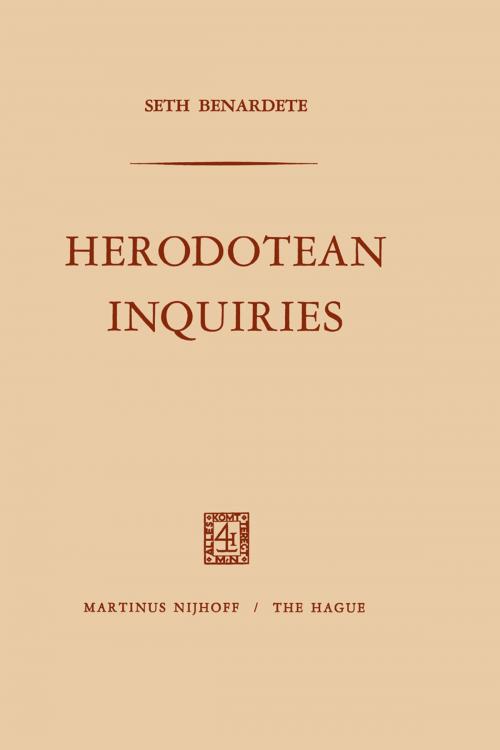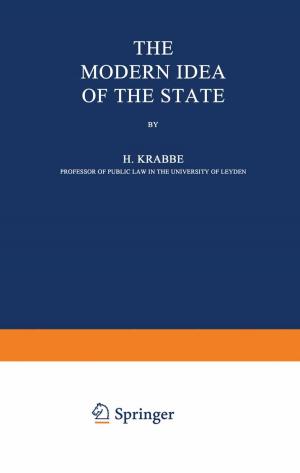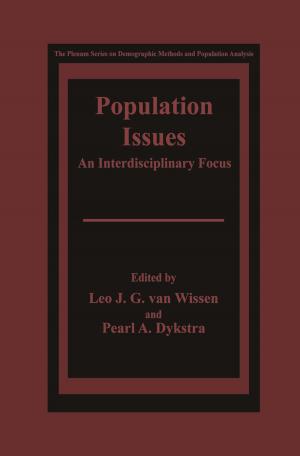| Author: | S. Benardete | ISBN: | 9789401031615 |
| Publisher: | Springer Netherlands | Publication: | December 6, 2012 |
| Imprint: | Springer | Language: | English |
| Author: | S. Benardete |
| ISBN: | 9789401031615 |
| Publisher: | Springer Netherlands |
| Publication: | December 6, 2012 |
| Imprint: | Springer |
| Language: | English |
Herodotus has so often been called, since ancient times, the father of history that this title has blinded us to the question: Was the father of history an historian? Everyone knows that the Greek word from which 'history' is derived always means inquiry in Herodotus. His so-called Histories are in quiries, and by that name I have preferred to call them. His inquiries partly result in the presentation of events that are now called 'historical'; but other parts of his inquiry would now belong to the province of the anthro pologist or geographer. Herodotus does not recognize these fields as distinct; they all belong equally to the subject of his inquiry, but it is not self-evident what he understands to be his subject: the notorious difficulties in the proemium are enough to indicate this. If his work presents us with so strange a mixture of different fields, we are entitled to ask: Did Herodotus under stand even its historical element as we understand it? Without any proof everyone, as far as I am aware, who has studied him has assumed this to be so.
Herodotus has so often been called, since ancient times, the father of history that this title has blinded us to the question: Was the father of history an historian? Everyone knows that the Greek word from which 'history' is derived always means inquiry in Herodotus. His so-called Histories are in quiries, and by that name I have preferred to call them. His inquiries partly result in the presentation of events that are now called 'historical'; but other parts of his inquiry would now belong to the province of the anthro pologist or geographer. Herodotus does not recognize these fields as distinct; they all belong equally to the subject of his inquiry, but it is not self-evident what he understands to be his subject: the notorious difficulties in the proemium are enough to indicate this. If his work presents us with so strange a mixture of different fields, we are entitled to ask: Did Herodotus under stand even its historical element as we understand it? Without any proof everyone, as far as I am aware, who has studied him has assumed this to be so.















